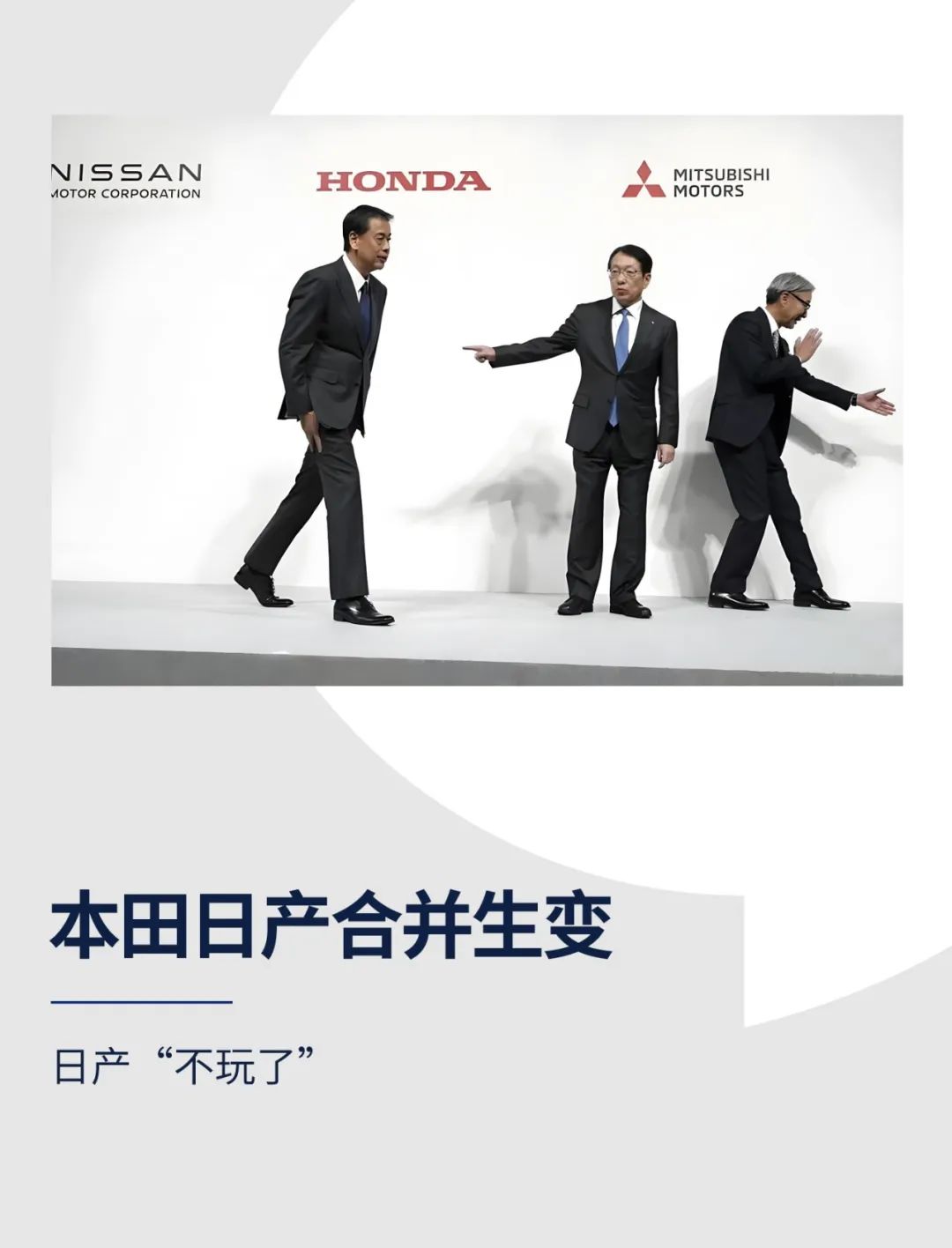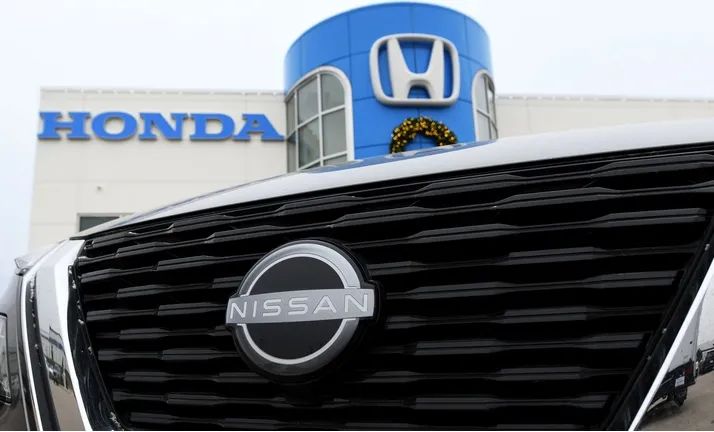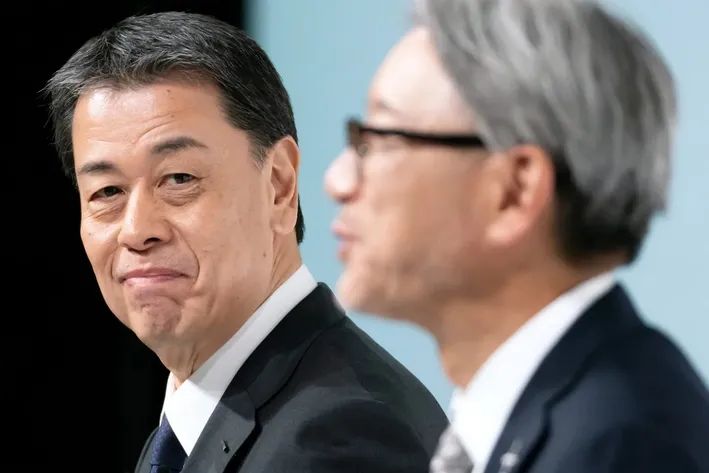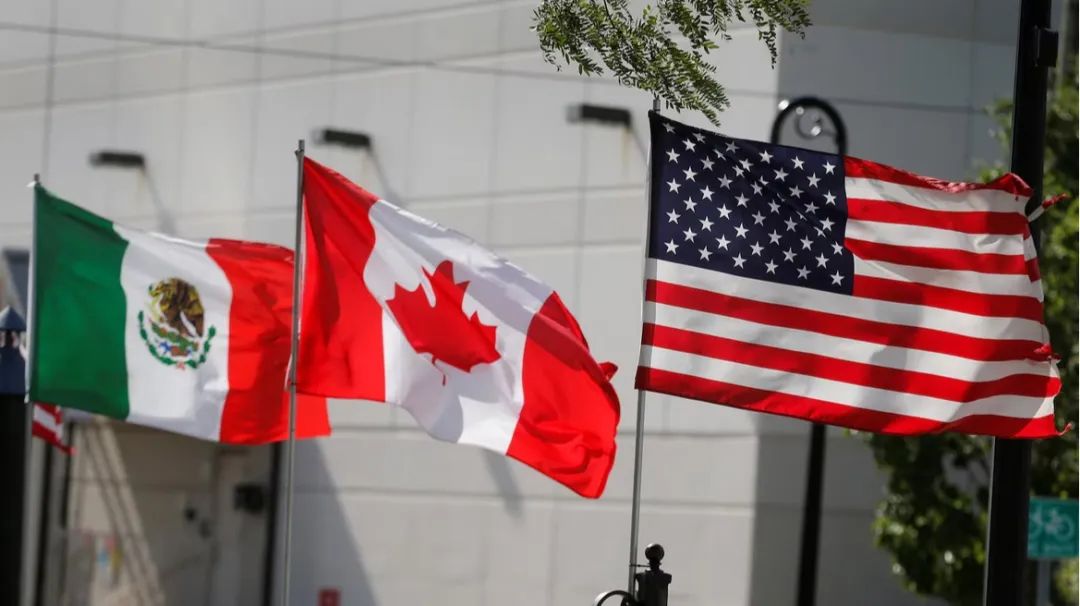Honda-Nissan Merger Hangs in the Balance
![]() 02/06 2025
02/06 2025
![]() 568
568

Compiled by | Yang Yuke
Edited by | Ge Bangning
Produced by | Bangning Studio (gbngzs)
Honda aimed to 'swallow' Nissan, but Nissan 'quit'.
Later, on February 5, Reuters cited sources stating that Nissan's board had agreed to abandon merger talks with Honda.
Earlier, the Nikkei reported that Honda proposed directly acquiring a stake in Nissan, making it a subsidiary, but this proposal faced 'strong opposition' internally at Nissan, leading to the decision to revoke the merger memorandum of understanding (MoU) reached with Honda.
At the end of December last year, Nissan and Honda reached an MoU to finalize an agreement by June this year and establish a holding company by August 2026 to integrate through the holding company. Since then, both sides have discussed integration issues, but the talks have reached an impasse due to differences in share ratios and other conditions.
According to sources, the two companies will temporarily suspend talks to consider seeking integration or cooperation in other ways. One of the conditions for Honda to proceed with the merger was that Nissan made significant progress in its restructuring plan, but the situation does not appear optimistic.
A Nissan insider revealed that Honda had sought advice on making Nissan its subsidiary, but such an arrangement deviated from the original intention of setting up an equal merger.
People familiar with the negotiations disclosed that tensions emerged early in the negotiations, with conflicts over shareholding ratios and asset valuations. Nissan executives were surprised by this new proposal but have yet to make a final response.
Christopher Richter, an analyst at CLSA covering Japan's auto industry, believes: "News that Nissan is unwilling to become a subsidiary of Honda highlights that control is a contentious issue."
Nissan hopes to integrate on equal terms. As of late afternoon Tokyo time on February 5, Nissan's board was still meeting to discuss the matter.
A Nissan spokesman said the company had not officially announced anything. "Our goal is to determine the direction by mid-February, at which time an announcement will be made," he said.
A Honda spokesman stated that the company had not heard anything from Nissan about withdrawing from the MoU reached on the merger. Currently, "various issues, including those reported in the media," are being discussed with Nissan, and the two companies plan to issue a statement around mid-February.
On February 5, Nissan's share price plummeted 4.8%, prompting the Tokyo Stock Exchange to suspend trading in Nissan, citing the need to verify media reports about the cancellation of the merger.
Honda's shares continued to trade, closing up 8.2% and surging nearly 12% at one point, indicating that Honda investors were relieved that the deal had been canceled.


Honda Gains the Upper Hand
It is evident that Honda, with a market capitalization more than four times that of Nissan, has gained the upper hand since reports of the merger emerged in December last year. When the two companies announced the deal, Honda made it clear that Nissan must implement a restructuring plan for any deal to materialize.
If Honda and Nissan decide to merge, the combined holding company would become the world's third-largest automaker by sales, behind Toyota and the Volkswagen Group.
The two companies agreed last year to explore cooperation in technologies such as electric vehicle software and components, with Mitsubishi Motors joining the plan in August last year.
However, Honda's tradition of risk-taking and independence contrasts sharply with Nissan's history of alliances and government-driven industrialization. Founded in 1948 by Soichiro Honda, Honda is renowned for its innovation, with products ranging from motorcycles to humanoid robots. In contrast, Nissan, founded in 1933, has focused on global expansion and alliances, such as its long-standing partnership with the Renault Group.
Some may recall that a few months before the merger talks were confirmed, Carlos Ghosn, former chairman of Nissan, mentioned that Honda was interested in a "disguised takeover" of Nissan.
"I can't imagine for a moment how the relationship between Honda and Nissan will develop unless it's an acquisition, unless it's Honda disguised as an acquisition of Nissan and Mitsubishi, with Honda in the driver's seat," Ghosn said. "It will be an acquisition, a disguised acquisition."
The fact that Renault holds a 36% stake in Nissan may also affect the deal. Ghosn noted that Nissan's European commercial vehicle business is primarily based on Renault, and almost all small and compact models are based on platforms shared with Renault.
Last week, Renault urged its Japanese partner to raise its equity premium to consider Honda's control. It also pressured Nissan not to delay negotiations, as Renault believes Nissan needs to focus on reviving its business.
Even if the merger does not happen, the two companies are expected to continue cooperating in the development of automotive technology. Adam Bernard, founder of AutoPerspectives, wrote in an email: "I do think the earlier cooperation agreement on software and electrification propulsion makes sense, but a full merger seems harder to swallow and more difficult to execute."


Mitsubishi 'Sits on the Fence'
There are reports that Mitsubishi has decided not to join the Honda-Nissan alliance, despite earlier indications that it was strongly considering joining the partnership.
However, Mitsubishi may still cooperate with Nissan and Honda.
The Yomiuri Shimbun reported on January 24 that Mitsubishi had decided to withdraw from the merger plan. Although Mitsubishi had considered joining the proposed holding company, it ultimately appeared more willing to continue operating independently and maintain its independence.
Mitsubishi later issued a statement neither confirming nor denying the report, saying only that it was still evaluating various options. The situation becomes somewhat complicated considering that Nissan is Mitsubishi's largest shareholder, with a 24% stake.
Earlier this week, Mitsubishi stated that it would make a final decision once Honda and Nissan reach an agreement later this month.
Although Mitsubishi has signed an MoU with Honda and Nissan on possible alliances in certain areas, it is not interested in participating in this large-scale merger. It wants to remain independent but is open to the idea of closer cooperation.
On February 4, Takao Kato, CEO of Mitsubishi, said it was still considering whether to join. Since Honda or Nissan have not revealed any new details, Mitsubishi will wait until around mid-February.
"At this stage, we are considering various possibilities, and we have not decided on a (specific) direction," Kato told reporters in Tokyo on February 4. "We haven't made any decisions yet."
A month ago, Honda and Nissan signed an MoU to explore a possible large-scale merger. While the joint press release did not include Mitsubishi, another document released that day mentioned that all three Japanese brands had signed a second MoU. Mitsubishi stated that it would explore "participation, intervention, and collaborative sharing" in the Honda-Nissan merger.
This development reflects Mitsubishi's concern that joining the Nissan-Honda merger in the form of a holding company would result in a loss of management control. Mitsubishi has a strong presence in Southeast Asian markets such as Indonesia and the Philippines.
As competition in the automotive industry shifts towards electrification and software development, questions about the synergistic effects of a merger between Honda, Nissan, and Mitsubishi persist. Electric vehicles and software development are areas where all three automakers are striving.
While a merger involving Mitsubishi could help gain an advantage in Southeast Asia against Chinese competitors, insiders at Honda and Mitsubishi have expressed caution about the progress of Nissan's business transformation, one of the prerequisites set by Honda for the merger to materialize.
In November 2024, Nissan announced that it would lay off 9,000 people globally and cut global production capacity by 20% due to a more than 90% drop in net profit from April to September 2024.


No Other Option
This development casts a shadow over the two companies' plan to become the world's third-largest automaker by sales after a merger and raises new questions about whether the battered Nissan can survive the crisis without external help.
Outdated product lines, bloated dealer incentives, and unstable leadership are just a few of the long-standing issues plaguing Nissan. Without Honda's support, it is unclear how Nissan can turn a profit.
In the first half of last year, Nissan's net sales fell by 94%, forcing it to lay off thousands of employees, cut production capacity, and reduce its annual profit forecast by 70%.
A few weeks later, Honda unveiled a plan to save Nissan by joining forces to regain market share lost in the United States and China. In the United States, Toyota has gained an advantage due to the popularity of hybrid electric vehicles. In China, waves of electric vehicle innovation have forced foreign brands to cede ground.
At the same time, potential tariffs imposed by U.S. President Donald Trump caused trade disruptions. Analysts said tariffs on Mexico would affect Nissan more than Honda or Toyota.
"Investors may be concerned about Nissan's future and its ability to turn a profit," analyzed Vincent Sun, an analyst at Morningstar. "Compared with Honda and Toyota, Nissan has greater exposure to the risk of U.S.-Mexico tariffs."
Tariffs on cars imported from Mexico would put pressure on Nissan. Nissan produces three models in Mexico, accounting for nearly a third of its U.S. sales.
Industry analysts say this would undoubtedly exacerbate the problems of a brand already in financial trouble.
Ivan Drury, an analyst at Edmunds, said the proposed 25% tariff posed a double threat to Nissan. "These three entry-level models appeal to first-time buyers and those who have sat out the price wars of recent years. A 25% price increase could leave buyers of Mexican-made products without the opportunity to buy a new car."
After the White House agreed to postpone tariffs on February 3, Nissan and other automakers had a month to prepare for possible tariffs on imports from Mexico and Canada.
Vinay Shahani, head of sales and marketing at Nissan USA, said the company was "closely monitoring the situation."
Tariffs leading to price increases would exacerbate the problem of oversupply that Nissan faced last year.
Nissan could respond to tariffs in the short term through incentives. "But in the long run, it will be a huge hit to profitability," said Jeff Schuster, vice president of GlobalData. "If tariffs continue beyond 2025, this is not a sustainable solution."
Analysts say shifting production to the United States is the last resort. Sam Fiorani, vice president of AutoForecast Solutions, believes this would require costly reassembly and eliminate the pricing structure that made these models popular in the first place.
If tariffs become a reality, Honda and Nissan have few other options. Building a new factory takes up to three years, and retooling an existing production line to produce another model can take up to 18 months.
More likely, they will absorb or pass on the costs to customers. The CLSA analyst believes that a 25% tariff could mean an average price increase of about 6% for Honda vehicles and about 3% for Nissan vehicles.
Regardless of the path they choose, they will have to reduce already depressed profit margins, which was the key driver behind the two companies' merger talks.
(This article incorporates reports from Automotive News, France 24, Reuters, Motor 1, Automotive Dive, The Economics Times, Financial Times, Car Expert, The Mainichi, South China Morning Post, with some images sourced from the internet)








